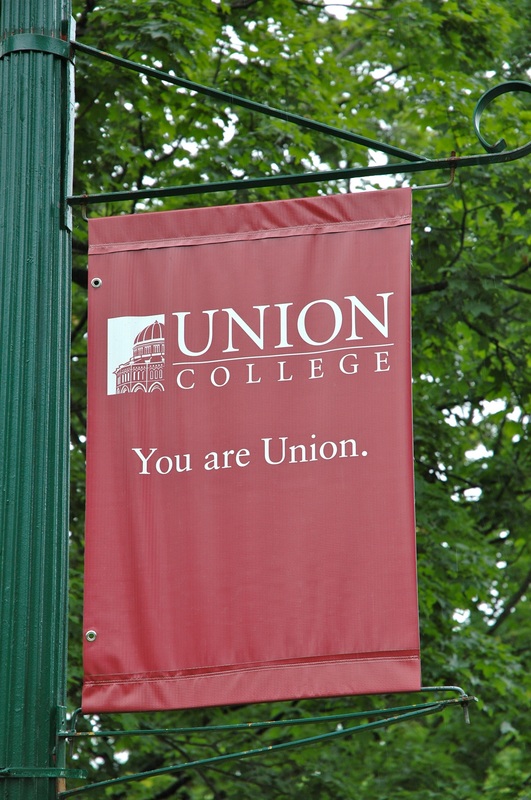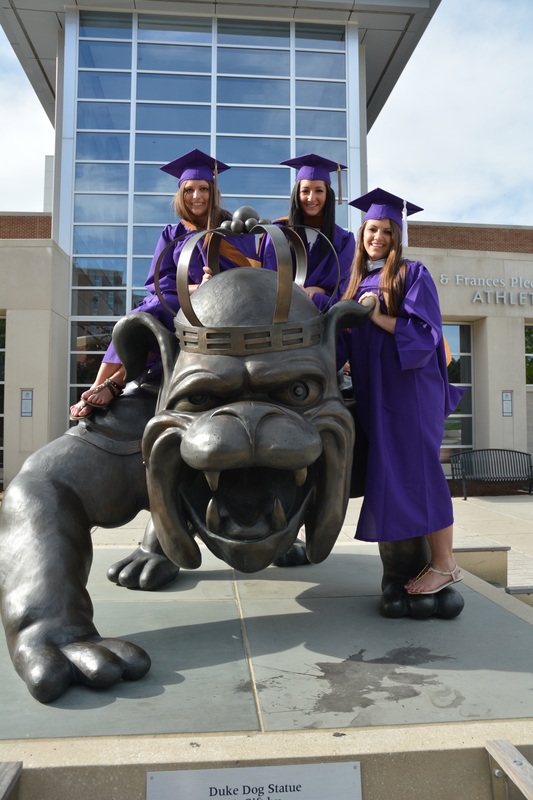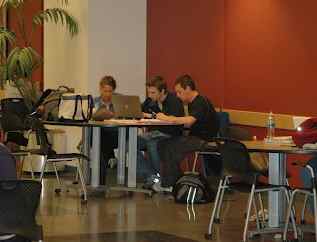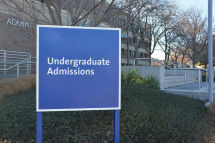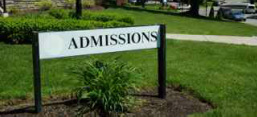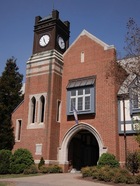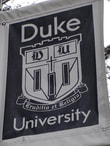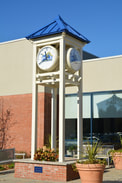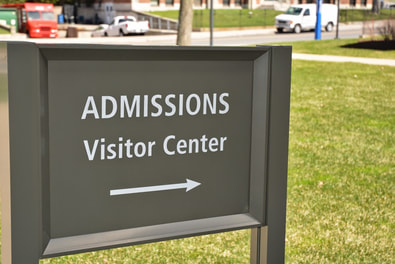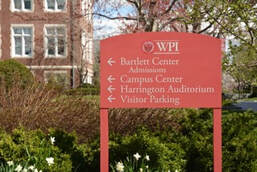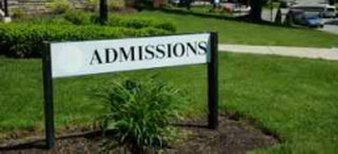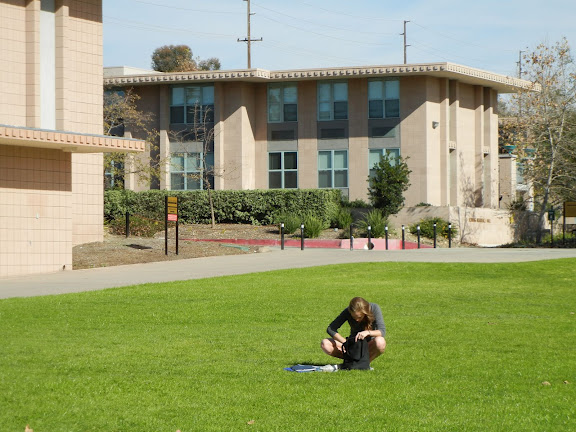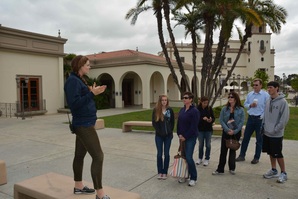Timely Tips for Juniors & SeniorsJune is the time . . . for Seniors
May is the time . . . for Seniors. . .
April is the time . . .
In addition to size and location, students should think about their learning style, extracurricular interests, value priorities, their future goals - and their family's budget. If you'd like some help identifying your student's top factors needed for happiness and success in college, please contact me at Carolee@CollegeBoundGuidance.net
College Bound Guidance is located in Branford, CT
Services are available via Zoom, FaceTime, email and phone. 201-669-0012
|
For Juniors to plan an
|
For Seniors to look forward to some Yes's and prepare for some No'sHere are some tips for dealing with the highs and lows of the college reply season:
|
If you have questions about college visits, financial aid awards, or any other part of the college search and application process, please click here to: send me an email! |
February is the time. . .
For Seniors to make sure admissions has received all of your application materials. Open all email from the schools you’ve applied to – many track your electronic interest.
Check your email for requests from admissions offices and check your portal at each school to track your application progress -and show your interest. Some schools keep track of emails opened and links clicked to understand your interest. Don’t panic if something is missing. Test scores, transcripts and recommendations don’t just appear there magically. Even electronic transmissions require data management on the college end and may take time for processing – and there is room for human error. If you need to follow up, and have already established e-mail contact with an admissions person, an e-mail is appropriate. Otherwise, a phone call to the admissions office may be the most efficient method. This is a very busy time for college admissions, so remember to be patient! |
For Juniors to dig in and become scholars.With the start of a new semester, now is the time to start getting ready to become a college student:
1. Speak up in class. Be a dynamic contributor. Not only will it get your blood moving, but that’s what colleges are looking for. When you do have an opportunity to contribute or discuss, go for it! This is your chance to give your teachers something to write about in recommendation letters. 2. Explore possible majors and careers. Only 40% of college students finish college in four years or less. That could be due in part to the fact that 1 in 3 students change majors. There’s nothing wrong with being undecided – or having multiple talents and interests. But when you start searching for good match colleges, why not also start learning about majors and programs that might be of interest - and suit your skills, values and goals? 3. Experiment with your learning style. Do you learn best by listening? Seeing? Writing? Talking? Doing? Take steps to optimize your preferred style and strengthen the ones you find most challenging. 4. Read! Spending 10 -20 minutes every night with a good book - or even a fun book - will improve your reading speed, your vocabulary and give you an ear for proper grammar. All college – and life! – skills. |
January is the Time . . .
January and February is the time for Juniors to research colleges and develop a list of good match schools to visit.
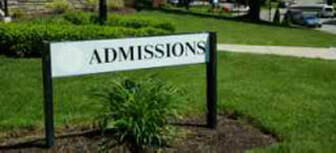
Recently, colleges have gotten much more creative with their virtual visit opportunities, including live streaming tours, short Q&A sessions and student panels where you can easily type questions in without ever appearing on screen. Go to the official college website (ending in .edu) and type "visit" or "virtual visit" into the website search box.
If you have any questions about the college search
and application process, please give me a call
at 201-669-0012 or email me at Carolee@CollegeBoundGuidance.net
If you have any questions about the college search
and application process, please give me a call
at 201-669-0012 or email me at Carolee@CollegeBoundGuidance.net
|
. . . for Seniors to
understand deferrals. . . If you are deferred that is not necessarily a bad thing. In fact, if you have applied ED (early & binding) to a school, a deferral means you are still under consideration and no longer committed to attend if accepted. (That means you are now free to consider some of those nice EA scholarship offers that may have already come in!) The two main reasons that schools defer students are to:
|
. . . for Juniors to Make a New Year's Resolution to Read!Reading 10 or 20 minutes every night before turning out the light can improve your speed, your comprehension, and your writing. You’ll need these tools throughout high school and life - not to mention for SAT/ACT and college success. Start with light, fun reading - even funny books you enjoyed in 5th grade! - with a goal to move on to more substantial fare. Reading excellent writers – and even the challenging classics - (Charles Dickens, Edgar Allen Poe, Emily Bronte, Jules Verne) can help you build your reading stamina and vocabulary while giving you an ear for proper grammar and usage.
Here are some titles my students have recommended to their friends: The Body Finder by Kimberly Derting Feed by M. T. Anderson Water for Elephants by Sara Gruen Wicked by Gregory Maguire The Red Tent by Anita Diamant The Book Thief by Markus Zusak The DaVinci Code by Dan Brown Things They Carried by Tim O’Brien And here’s a fun video with great study tips to start the new year off right: STUDY SMARTER, NOT LONGER 9 Best Scientific Study Tips |
December is the Time . . .
For Seniors to submit!The busy holiday season is upon us, but life in the college application lane has not yet slowed down! January deadlines are coming up, and following up on submissions is also important.
Here are some tips to keep in mind after hitting submit: 1. Look for an email confirmation that your application was received. Typically this confirmation email will instruct you on setting up an account or portal at that college. You will be able to track all the parts of your application (test scores, letters of recommendation, transcript) as they are collected through this portal. Your decision may also be posted here. 2. If you don’t get a confirmation within 2 weeks of submitting, call the college admissions office to confirm receipt. 3. DON’T PANIC. If you get an email or see on your portal that something you believe has already been sent has not arrived, it could just be that all the information has not caught up yet. If something does get lost in transmission, call the admissions office and offer to email the missing materials and then track down and resend the official documents . 4. Don’t forget to say Thank You ! Send thank you notes to the teachers and coaches who have written letters of recommendations for you. A handwritten note tucked in your teacher’s mailbox will go a long way. Especially if you need a recommendation for a scholarship application this spring. These are people who care about you and have gone to bat for you. Also, don’t forget to let them know where you have been accepted and which school you’ll be attending. They’ll want to know! |
For Juniors to think
|
November is the time
. . . for Juniors to gain some college knowledge with on-campus or
|
. . . for Seniors to finish up ALL their applicationsIf you have already pressed submit for November 1 and 15 deadlines, bravo! Don't stop now. Regular decision dates will soon be upon us. Make sure your end of the year holidays will be filled with light and joy, by wrapping up your application work as soon as possible. Here are my top tips for essay and supplement work: 1. Reveal something about yourself that’s not evident in your list of activities or transcript. 2. Spend as much time on supplement questions as your main essay or personal statement. 3. Answer the question! Read it carefully and make sure you answer all the parts. 4. Pay close attention to your exact word count. Essays and supplements over the posted word count limits may prohibit you from completing your submission. 5. And, BE SURE to carefully “Preview” AND download a copy of your completed application as a record of your submission, just in case! |
October is the time. . .
If you have questions about college visits, applications, financial aid awards, or any other part of the college search and application process, please contact me!
The FAFSA normally opens October 1*
*except this year it doesn't - it will open in December -
that date in December has yet to be announced
TOP FIVE REASONS EVERY SENIOR SHOULD FILE THE FAFSA
(Free Application for Federal Student Aid)
1. Insurance - in case of emergency. If your financial status changes due to an unforeseen emergency, and you now qualify for need-based aid, you may amend your FAFSA - but only if it has been previously filed within the annual filing date.
2. Aid from colleges. Even if you don't qualify for federal aid, you may qualify for aid from the colleges themselves.
3. Demonstrating interest. Because of the ease of applying to many colleges online, some colleges may not consider you to be a serious candidate unless you've filed the financial forms with them.
4. Revealing your ability to pay. Knowing that your student is academically AND financial viable may increase your chance of merit offers.
5. Getting skin in the game and establishing credit. When you and your student file the FAFSA, mo matter what your financial situation, your student will qualify for the Direct Student Loan (Stafford Loan). These loans do not require a co-signer, can give students incentives for employment, managing their finances and enable them establish credit.
To file this form, you need past tax information and two personal identification numbers – FSA ID’s - one for a parent and one for the student. The online instructions and help sections are quite good. If you have all your tax and financial records on hand, the process should take about 2 hours. Go to http://www.fafsa.ed.gov/ and get started!
*Mark Kantrowitz’s Excellent Article “How FAFSA Simplification is Changing Financial Aid Eligibility” gives plenty of interesting details, but here are some basics below.
1. More colleges can be listed on the FAFSA - up to 20 instead of 10
2. Fewer questions, better alignment with IRS tax details - DDX - "IRS Direct Data Exchange"
3. Terminology change - it's now called a "Student Aid Index" instead of the previous "Expected Family Contribution" (EFC
4. Income Protection Allowance (IPA) will no longer be reduced when two or more children are enrolled in college simultaneously, BUT
5. The "Student Aid Index" (previously called EFC) will no longer be divided by the number of children in college at the same time, decreasing aid eligibility for middle an high income students when two or more children are in college at the same time.
6. For Divorced Parents: The parent responsible for filing the FAFSA will be based on whichever parent provides more financial support to the student, not the parent with whom the student resides. It's not clear whether this will be based on financial support provided during the prior-prior tax year or, the 12 months ending on the date the FAFSA is filed.
2. Aid from colleges. Even if you don't qualify for federal aid, you may qualify for aid from the colleges themselves.
3. Demonstrating interest. Because of the ease of applying to many colleges online, some colleges may not consider you to be a serious candidate unless you've filed the financial forms with them.
4. Revealing your ability to pay. Knowing that your student is academically AND financial viable may increase your chance of merit offers.
5. Getting skin in the game and establishing credit. When you and your student file the FAFSA, mo matter what your financial situation, your student will qualify for the Direct Student Loan (Stafford Loan). These loans do not require a co-signer, can give students incentives for employment, managing their finances and enable them establish credit.
To file this form, you need past tax information and two personal identification numbers – FSA ID’s - one for a parent and one for the student. The online instructions and help sections are quite good. If you have all your tax and financial records on hand, the process should take about 2 hours. Go to http://www.fafsa.ed.gov/ and get started!
*Mark Kantrowitz’s Excellent Article “How FAFSA Simplification is Changing Financial Aid Eligibility” gives plenty of interesting details, but here are some basics below.
1. More colleges can be listed on the FAFSA - up to 20 instead of 10
2. Fewer questions, better alignment with IRS tax details - DDX - "IRS Direct Data Exchange"
3. Terminology change - it's now called a "Student Aid Index" instead of the previous "Expected Family Contribution" (EFC
4. Income Protection Allowance (IPA) will no longer be reduced when two or more children are enrolled in college simultaneously, BUT
5. The "Student Aid Index" (previously called EFC) will no longer be divided by the number of children in college at the same time, decreasing aid eligibility for middle an high income students when two or more children are in college at the same time.
6. For Divorced Parents: The parent responsible for filing the FAFSA will be based on whichever parent provides more financial support to the student, not the parent with whom the student resides. It's not clear whether this will be based on financial support provided during the prior-prior tax year or, the 12 months ending on the date the FAFSA is filed.
September is the time
For Juniors to start their search . . . for good match schools. Now is the time to start thinking about college, especially If you’d like to make use of travel opportunities during the days off for the New Jersey teachers conference in November. What are the top factors you will need in a school to be happy and successful there? Think about learning style, extra-curricular passions and what is needed for support and challenge, as well as educational goals. Instead of asking “What’s a good school?” Ask, “What’s a good school for my student?”
If you would like help determining which factors will drive your student’s college list, please give me a call at 201-669-0012 or send me an email! If you have questions about college applications, essays, financial aid awards, or any other part of the college search and application process, please click here to: send me an email!
|
For Seniors to . . . set up college interviews. Now is time that seniors should be narrowing and balancing their list of colleges to include very likelies, targets and reaches and setting up interviews with the schools that suggest or require them. You’ll want to ask if the interview is “informational” (an opportunity for the student to learn more about the school in a more formal setting) or “evaluative” (notes from the meeting will be added to the student’s application portfolio) as well as how many interviewers and interviewees will be participating in your scheduled time slot. You should also find out whether the interviewer will be a student or admissions officer. Even if you discover that the interviewer will be a college student and are told that it will be “purely informational,” it still is an important process, and for many schools, a good way for a student to show interest. Zoom is a fabulous tool for college interviews, many schools are offering all their interviews that way. If you have any questions about the interview process, or want to set up a mock interview session, please give me a call or send me an email! |
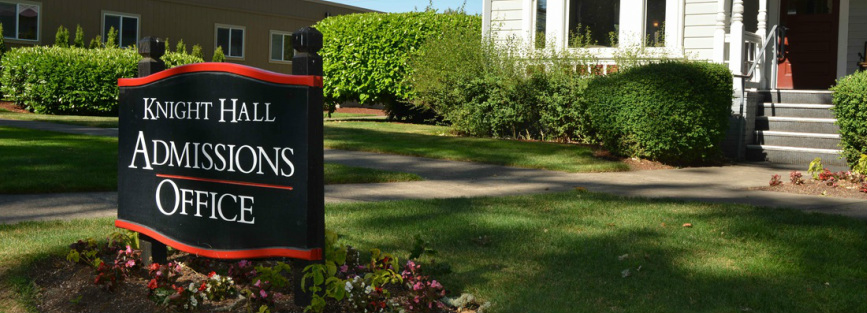 Pacific University
Pacific University
August is the time
. . . for rising Seniors to work on essays and fill out applicationsIn addition to working on a main personal essay, Seniors can create an account on the Common Application, fill in their information, list of activities and start collecting supplement questions for colleges they know they will be applying to. “The Common App” is an electronic application that over 1000 colleges and universities, both public and private, are using. It allows students to submit “common” information (personal information, and a main essay) in addition to college specific supplement questions. Check it out here: https://www.commonapp.org |
. . . for high school graduates to think about making the most of collegeHere are some first semester tips for success that I've gathered from my college students: Join something! Many high school students have been nurturing a circle of friends since kindergarten. Don’t expect to find a new band of brothers (or sisters) in the first two months of college. Joining a club you’re even slightly interested in ups your chances of finding kindred spirits quicker. Almost any college can feel like a party school. If you don’t join a club with a purpose you may find yourself hanging with students whose extra-curricular purpose is inebriation. Ask your dean of students about substance free activities, dorms or organizations. Be prepared to study somewhere else. High school students who don’t share a bedroom are used to studying in their rooms, but college students with roommates often need to use libraries or find other campus nooks and crannies that better suit their noise level needs. Read the books! Titles listed on a course syllabus are not “suggested” or “pleasure” reading and a professor will NOT say: “Read pages 120 - 300 tonight, class.” Get to know a professor. One thing a surprising number of students regret is not taking advantage of the brain power and expertise around them. All professors have office hours and few students use them. If you make a plan to try to get to know at least one professor a semester and fail half the time, you’ll still have a list of 4 professors as references, contacts, - friends. GPA surprises. Grade averages of four college classes (a typical semester load) can look quite different from averages drawn from seven high school courses. And college courses are often graded on only several tests or assignments. GPA’s can easily fall one whole point the first semester. When you’re not participating in something you’ve joined, go to the library and study! |
July is the time
. . . for rising Juniors. . . to double their check course selections for next year. Are you on track for your educational goals? Besides completing high school requirements, will you be a competitive candidate at the colleges you'd like to apply to? How many lab sciences, years of foreign language and math do your colleges require or "suggest" that competitive applicants have? Plan now to make Junior Year the strongest yet!
|
. . . for rising Seniors. . . to start work on applications. It’s hard to believe that Senior Year has officially begun! Working diligently this summer on your college applications will help you enjoy your last year of high school. You can get stated filling out the Common App and the beginning of July is a good time to peruse your past (Grades 9 – 11) for all the wonderful things you’ve done. Make sure you take the time to calculate hours per week/weeks per year spent on activities, so you’ll be ready to fill in those details on the Common App. That's also required on many institutional applications.
And of course, as you’re reflecting on your past, you’ll begin to get ideas for a personal statement essay, which you’ll also want to complete this summer. |
University of Richmond
Making the Most of a
Virtual College Fair
Virtual College Fairs are not as much fun as onsite fairs, but they can help you gain some college knowledge without leaving home. Most fairs offer panels where 3 - 6 schools are represented and will each have a short turn to talk about their school and/or a theme or program such as "Making the Most of Career Services" or "STEM programs." Here are some tips on how to make the most of another Zoom or Webinar experience.
1. Schools that you’re curious about, but are too far to visit, will be represented. This is a great opportunity to try to figure out if you should make the trip when things open up. Have your questions ready and type them into the chat box as soon as you can: What kinds of students are they looking for? What's their strongest major and why?
2.You’ve got a list of “good match” schools – and many of them will be represented. Make a list of two or three things that you can ask at that will help you learn more about the school. Which majors offer the most internships? What is the most popular student organization? How many students stay on campus during the weekend?
3.Several schools that you REALLY like will be represented. You can use this opportunity to demonstrate your interest in the school by registering. Some schools care and keep track of who attends, some schools don't! After a virtual session, write a short thank you email to the admissions person who offers an address. Identify yourself with your full name and high school.
4.There’s a specific major or program you’re looking for. Like speed dating, you can quickly go from booth to booth asking, “Does your school have a program in _______________________. If yes, you may also want to ask how many students are involved in that department.
1. Schools that you’re curious about, but are too far to visit, will be represented. This is a great opportunity to try to figure out if you should make the trip when things open up. Have your questions ready and type them into the chat box as soon as you can: What kinds of students are they looking for? What's their strongest major and why?
2.You’ve got a list of “good match” schools – and many of them will be represented. Make a list of two or three things that you can ask at that will help you learn more about the school. Which majors offer the most internships? What is the most popular student organization? How many students stay on campus during the weekend?
3.Several schools that you REALLY like will be represented. You can use this opportunity to demonstrate your interest in the school by registering. Some schools care and keep track of who attends, some schools don't! After a virtual session, write a short thank you email to the admissions person who offers an address. Identify yourself with your full name and high school.
4.There’s a specific major or program you’re looking for. Like speed dating, you can quickly go from booth to booth asking, “Does your school have a program in _______________________. If yes, you may also want to ask how many students are involved in that department.
If you have questions about college applications, essays, financial aid awards, or any other part of the college search and application process, please click here to: send me an email!
March is the time . . .
For Seniors to apply for local scholarshipsDeadlines are generally March through mid April, and require – an essay! (But by this time you’re a pro at that, right?). Check your own high school guidance department website for a list of local scholarships – they are your most likely opportunities and a great place to start.
Other scholarship search engines include:Be careful as you create a profile on these sites. Never request or allow information to be sent to you from advertisers. And remember you will be competing nationally here. Your local Garden or Rotary clubs are working hard to find candidates for their support right now. Local newspapers are also a great source. |
For Juniors to
|
If you have questions about letters of recommendation or any other part of the college search and application process, please click here to: send me an email!

